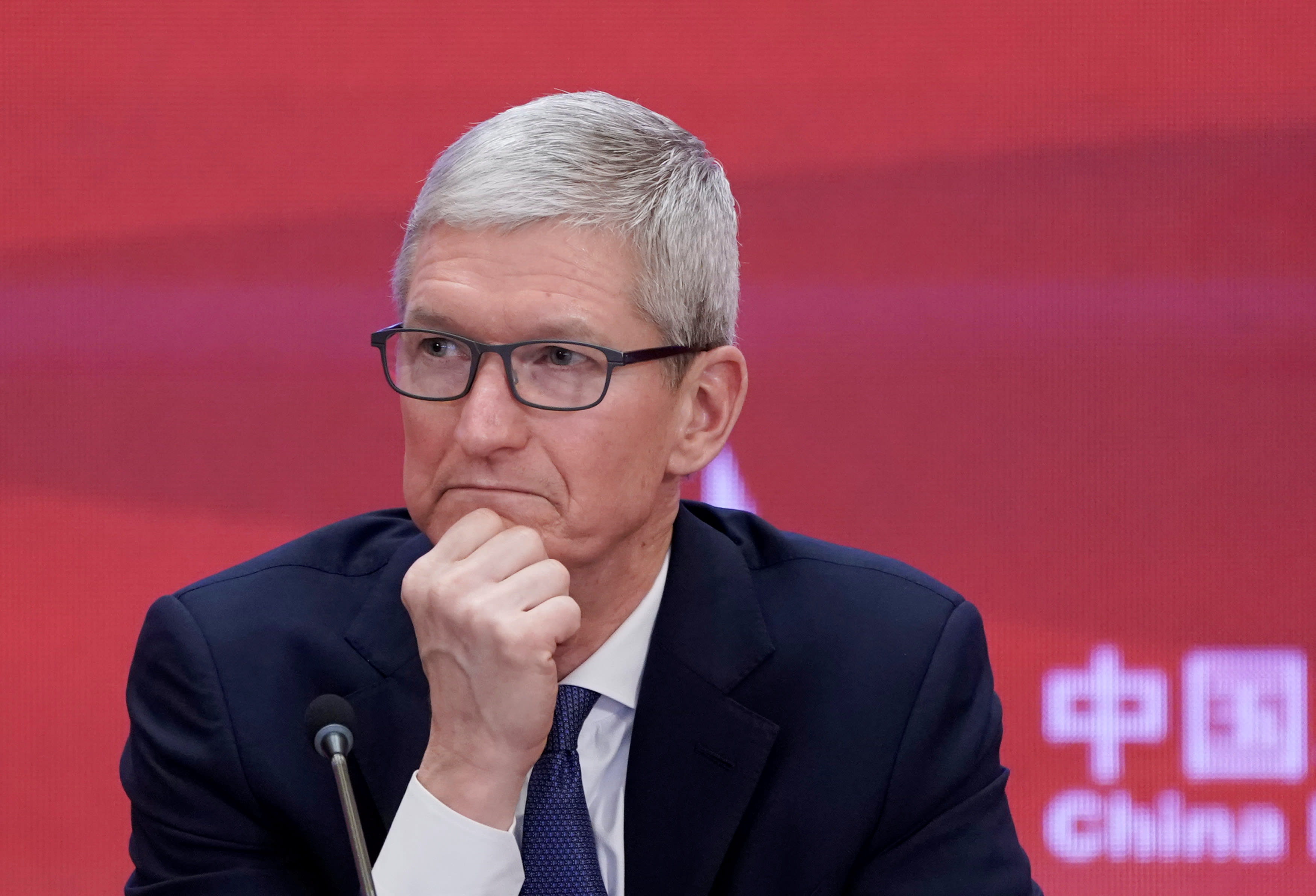
Apple CEO Tim Cook attends the annual session of China Development Forum (CDF) 2018 at the Diaoyutai State Guesthouse in Beijing, China March 26, 2018.
Jason Lee | Reuters
Factories in China, the center of the electronics industry’s supply chain, have been closed for an extended Lunar New Year holiday and the outbreak of the deadly coronavirus. Most are expected to re-open on February 10, a week later than previously scheduled.
But quarantines and other measures put in place to stop the spread of the disease in China could continue to disrupt electronics manufacturing well into the holiday season, even if factories quickly return to full production, manufacturing experts said.
Andre Neumann-Loreck, founder of On-Tap Consulting, a Silicon Valley firm that specializes in advising hardware companies and startups building products in Asia, said that his clients had been asking a lot of questions about how to deal with the epidemic and were actively making contingency plans.
“Companies that are building hardware or physical products are in crisis mode now, and that’s true whether they’re getting finished goods built in China or relying on China for components and sub-assemblies,” Neumann-Loreck said.
For example, Facebook warned on Friday that it was expecting the coronavirus to impact the production of its Oculus Quest virtual reality headsets.
How delays could cascade
The supply chain has already been disrupted with the week-long delay to factories re-opening, said Sherina Kamal, risk analyst at Resillience 360, a logistics risk-management company backed by DHL.
“The ripple effect coming from one region in China is completely unprecedented,” Kamal said. “We’ve never seen anything like this.”
Factory staffing could be an issue that lasts long beyond the peak of the outbreak, given that many factory workers in China travel from the countryside to factories in urban areas.
“There are many temporary workers that go to the city to earn a living, then they go back and reunite with their families,” said Jayashankar Swaminathan, professor of global operations at UNC Kenan-Flagler Business School. “But in this situation, they may have second thoughts about whether to go back. That would be a major problem for companies if there is a shortage of manpower.
Well-run companies typically have plans for production disruptions, and if companies have identified second suppliers for key parts, they may be able to keep producing current products at a slightly slower pace, said Swaminathan.
But delays in the design and prototyping process could cascade well into the holiday season.
Chinese workers assemble electronic components at the Taiwanese technology giant Foxconn’s factory in Shenzhen, China.
AFP | AFP | Getty Images
That’s because electronics companies work on new products in Chinese factories at the same time they are producing last year’s products — a process called “new product introduction” (NPI). That means products scheduled for the holiday season months away could be delayed.
“Companies with a product in development, whether they’re in the prototyping stage or what’s called the NPI stage, they’re at risk for holiday 2020 because the schedules for holiday are already tight, and the schedules are already slipping because the factories aren’t open and the supply chains aren’t up and running,” Neumann-Loreck said.
In order to produce a large number of electronic devices, electronics companies go through several structured stages, or “builds.”
First, a company builds a small quantity, or what’s called an engineering verification test or EVT build, where the major features and components are tested and corrected. Then comes the design or development verification test, or DVT, used to make sure the devices can be built in large quantities. After that comes production verification tests, and finally “ramp,” when factories are making large quantities of the product for the public. The process takes months and a delay in one build can slow down the entire process.
“Those builds require hands-on engineering support from the development team. If you have a team in the U.S. that’s designing your product, they typically travel to China for those builds,” Neumann-Loreck said.
But U.S. companies are restricting employee travel to China, potentially limiting the hands-on time that engineers need to work out production issues. For example, Apple CEO Tim Cook said last week that the company was limiting travel to “business-critical” functions.
iPhone delays predicted
Some experts even expect delays to global icons, like Apple’s most important product, the iPhone.
“What is going to happen to iPhone in particular? I would bet this may delay the launch of the next model or products,” Swaminathan said.
“Our latest survey indicates that the iPhone supply is being affected by the coronavirus and, therefore, we cut the iPhone shipment forecasts by 10%,” TF Securities analyst Ming-Chi Kuo wrote in a February 2 note. He said second quarter shipments were difficult to predict because of “the uncertainties of the coronavirus epidemic and consumer confidence.”
During an earnings call last week, Cook said that the company’s revenue guidance took into account the uncertainty related to the situation, and that the impact on suppliers outside of Hubei was “less clear at this time.”
A representative for Foxconn, one of China’s largest employers and Apple’s primary iPhone assembler, did not confirm that factories will re-open on Monday, Feb. 10.
“We have been closely monitoring the current public health challenge linked to the coronavirus and we are applying all recommended health and hygiene practices to all aspects of our operations in the affected markets. These health and safety measures are conducted in tandem with the efforts implemented by the government,” the spokesperson said.
“The operation schedules for our facilities in China follow the recommendations of the local governments, and we have not received any requests from our customers on the need to resume production earlier.”
Leave a Reply